If your stomach had a voice, gastritis would be its dramatic meltdown.
One wrong bite and suddenly it’s throwing a full-blown tantrum—burning, bloating, and basically demanding a total kitchen overhaul.
Whether it was that spicy taco you knew better than to eat, or the third cup of coffee you swore was your last, gastritis doesn’t forget. Or forgive. This fiery condition is like that friend who gets offended over everything—you’ve got to walk on eggshells (just maybe not the fried ones).
Managing gastritis isn’t just about popping an antacid and crossing your fingers. It’s about choosing your meals like your stomach’s watching… because, well, it is.
To help you out, we’ve rounded up the ultimate no-no’s—13 foods and drinks that absolutely do not vibe with an inflamed stomach lining. Avoid these, and your belly just might stop holding a grudge.
1. Alcohol

Imagine this: a casual evening with friends and a glass of wine in hand. Sounds relaxing, right? However, for those dealing with gastritis, even a modest sip of alcohol can be trouble.
Alcohol can irritate your stomach lining, making symptoms go from a whisper to a shout. This fiery liquid inflames the stomach lining, causing pain that might make you regret that cheers.
While the social engagement is tempting, the aftermath can be severe enough to keep you away from the festivities for the night. If a drink is a must, consider opting for a non-alcoholic version and save your stomach the hassle.
Not only will it keep the gastritis at bay, but you’ll also wake up feeling better the next day.
2. Coffee (Caffeinated or Decaf)

The enticing aroma of freshly brewed coffee is often a morning delight, but it may not be a friend to those with gastritis. Regular or decaf, coffee can both increase stomach acid production, leading to discomfort.
That morning pick-me-up might just pick on your stomach instead, turning your day sour before it even starts. The acidity in coffee is a known agitator for the sensitive stomach lining, making those symptoms flare like a stubborn flame.
For a more stomach-friendly start, consider herbal teas or warm water with honey. These alternatives can ease your morning routine without sacrificing flavor and allow your stomach to wake up gently.
3. Carbonated Beverages (Soda, Sparkling Water)

The fizz of carbonated drinks might tickle your nose, but it can also inflate your stomach discomfort. Carbonated beverages, whether soda or sparkling water, increase bloating and pressure.
This bubbly burst can intensify inflammation in the stomach lining, leaving you feeling more than just gassy. It’s like adding fuel to the fire, making your gastritis symptoms worse than they need to be.
Opting for still water or a gentle herbal tea can quench your thirst without the unwanted side effects. Your stomach will thank you for sparing it the extra pressure and letting it heal in peace.
4. Citrus Fruits and Juices (Oranges, Lemons, Grapefruit)

The bright, tangy taste of citrus might remind you of summer, but for gastritis sufferers, it’s a harsh reminder of the discomfort to follow.
These fruits are highly acidic and can irritate an already sensitive stomach lining. Citrus juices, beloved for their refreshing quality, can be a double-edged sword, offering vitamin C but at the cost of gastric irritation.
The acidity level can turn your stomach into a battleground. For a more gentle fruit intake, consider apples or pears. They offer a sweet crunch without the acidic backlash, allowing your stomach to enjoy nourishment without the fight.
5. Tomato-Based Products
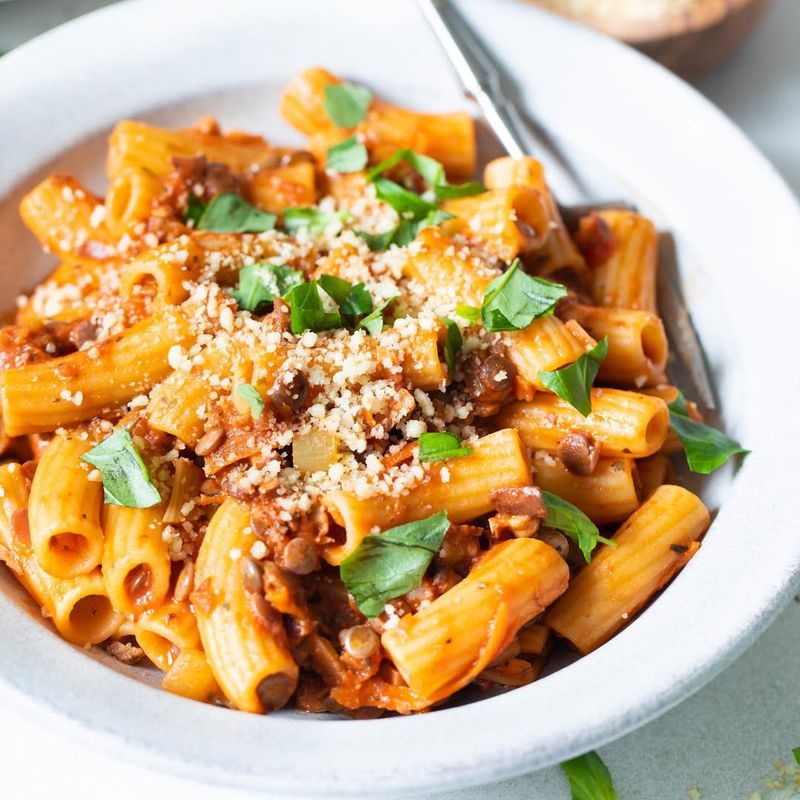
Tomatoes, with their vibrant hue and savory goodness, are a staple in many dishes. Yet, for gastritis sufferers, they can be a hidden enemy.
The acidity in tomatoes and their sauces can irritate the stomach, causing discomfort. Pasta with tomato sauce might be a dinner favorite, but it can also lead to nights spent battling stomach pain. The acidity is like a thorn in the side of already inflamed stomach linings.
A switch to creamy, non-tomato-based alternatives might provide relief. Consider pesto or alfredo as a delicious, smoother option that lets you enjoy your meal without the after-dinner distress.
6. Spicy Foods
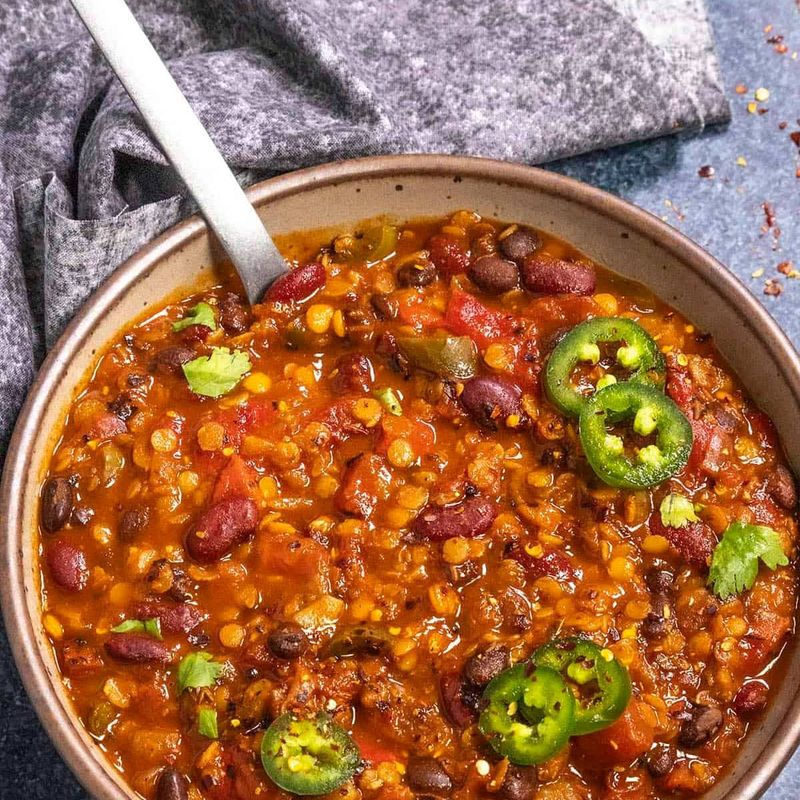
Spicy foods are like the thrill-seeker of the culinary world, always ready to ignite the senses. But for those with gastritis, they might as well be a red flag.
The heat from spice can cause flare-ups, increasing pain and irritation. Chili peppers and hot sauces bring more than just flavor; they carry potential discomfort. What starts as a tantalizing bite can quickly become a reason for regret.
Mild spices and herbs can add flavor without the fiery aftermath. Seasonings like basil or oregano offer taste without the tummy trouble, making them the hero of your gastritis-friendly kitchen.
7. Fried and Greasy Foods

There’s a certain allure to fried and greasy foods like fried chicken and fries. Unfortunately, this tasty temptation is a tough opponent for those with gastritis.
These foods are hard to digest, slowing down stomach emptying and irritating the stomach lining. Fast food may fill the hunger gap quickly, but it can leave your stomach in turmoil, waging a battle against inflammation.
The immediate satisfaction is overshadowed by the long-term discomfort. For a healthier craving fix, consider baked or grilled options. They provide the taste without the grease, offering satisfaction without the aftermath of gastric distress.
8. Processed Meats (Sausage, Bacon, Deli Meats)

Processed meats often find their way into our sandwiches and breakfast plates, but they’re wrapped in more than just deli paper.
High in fat and preservatives, these meats can trigger or worsen gastritis symptoms. The savory slices of bacon may be tempting, yet the salt and preservation methods used in these meats can lead to gastric irritation.
It’s not just about the fat; it’s about the overall impact on your stomach lining. Leaner, fresher cuts of meat or plant-based alternatives offer a more stomach-friendly choice.
These options provide the protein boost without the gastric price tag, keeping your meals enjoyable and pain-free.
9. Full-Fat Dairy (Cream, Cheese, Whole Milk)
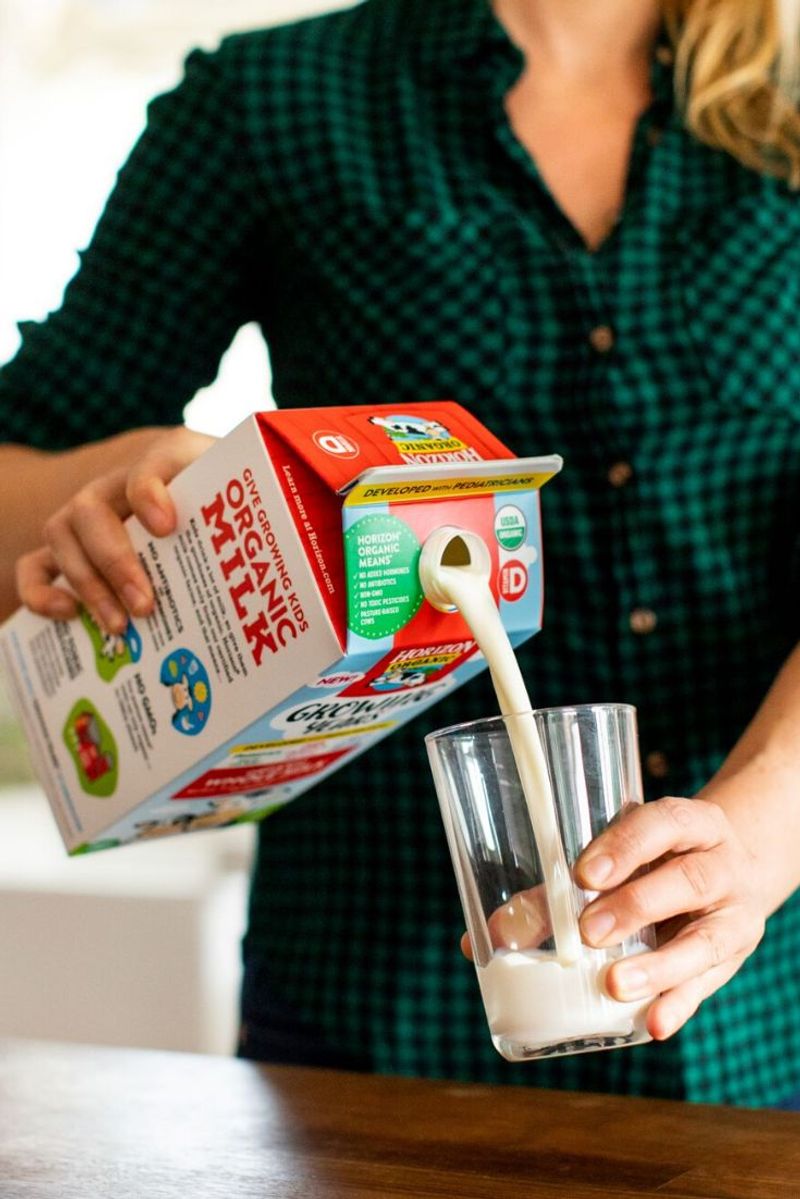
Creamy, rich and oh-so-delicious, full-fat dairy products like cheese and whole milk are culinary delights. However, for those with gastritis, they tend to bring more trouble than pleasure.
High-fat content can spur increased stomach acid production. A craving for creamy cheese might leave your stomach feeling anything but cheesy, as bloating and discomfort ensue. It’s a small indulgence with a potentially big impact on your gastric health.
Opting for low-fat or lactose-free alternatives can offer the taste without triggering symptoms. These choices allow you to enjoy your dairy without the distressing side effects, making meals more pleasant.
10. Chocolate

Chocolate, with its velvety texture and sweet allure, is hard to resist. Yet, for gastritis sufferers, it’s a double-edged sword. High in fat and sometimes containing caffeine, chocolate can increase acid production and irritation.
That satisfying bite might quickly turn sour as your stomach reacts to the rich concoction. It’s a bittersweet relationship, where the sweetness is overshadowed by the gastric distress that follows. Opting for small portions or dark chocolate with lower sugar might help ease the impact.
Enjoy chocolate with caution, savoring the taste without letting it take a toll on your stomach lining.
11. Peppermint
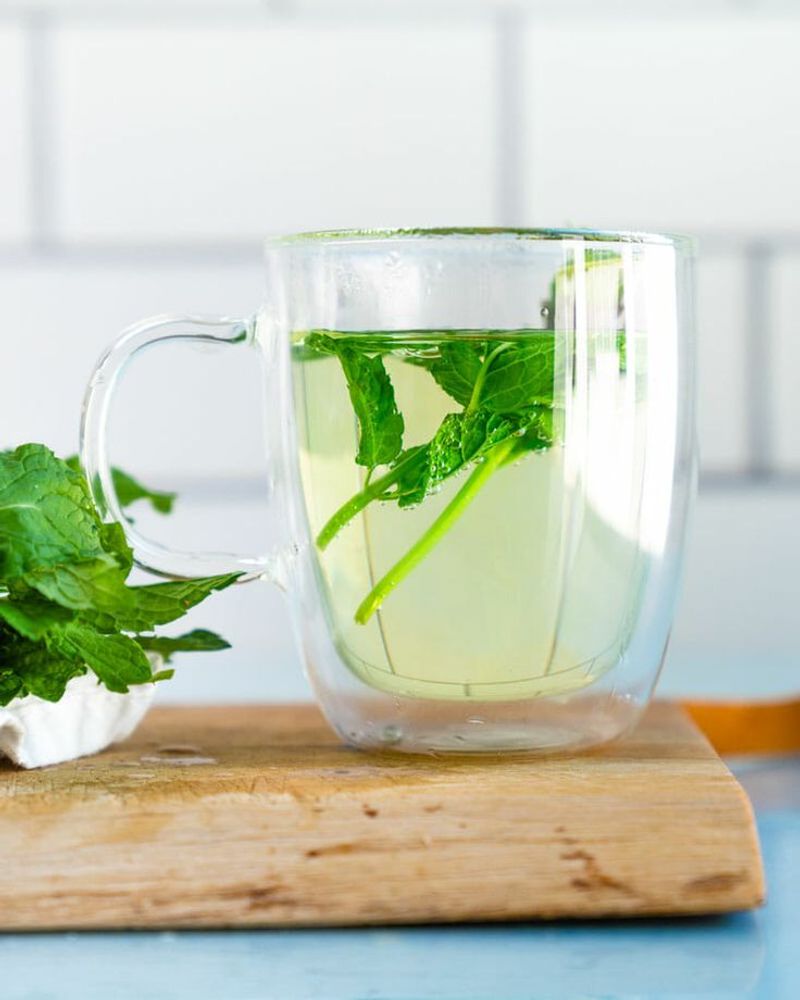
Peppermint, often considered soothing, can be a surprise antagonist for gastritis sufferers. Its relaxing properties might ease some digestive issues, but they also relax the lower esophageal sphincter.
This relaxation can lead to increased acid reflux, turning peppermint from a friend to a foe. What might seem like a gentle balm can open the door to gastric irritation. For those seeking relief, ginger or chamomile tea might offer a better alternative.
These options soothe without the risk of triggering reflux, providing comfort without the complications.
12. Onions and Garlic (Especially Raw)
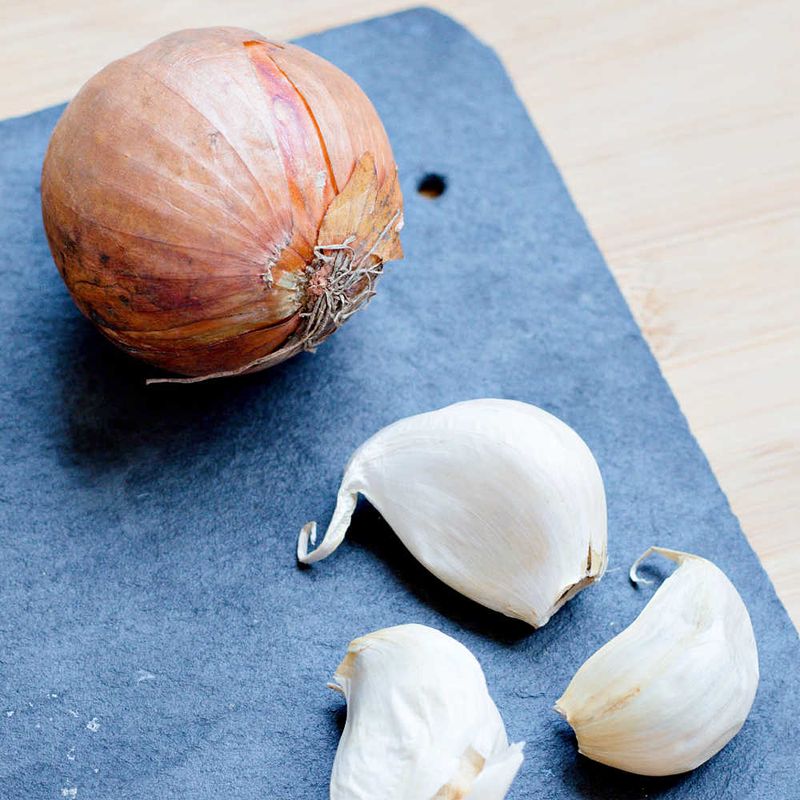
Onions and garlic, integral to countless recipes, can spell trouble for those with gastritis, particularly when raw.
Their pungent aroma and acidic nature can be harsh on the stomach lining. What begins as a flavorful addition might end up leaving a bitter taste due to the gastric irritation it causes.
The sharpness of raw onions and garlic can turn a simple dish into a stomach-churning experience.
Cooking these ingredients can reduce their harshness, making them more palatable without sacrificing flavor. A gentle sauté might be all it takes to turn these potential irritants into a savory delight.
13. Highly Refined Carbs and Sugary Foods

White bread, pastries, and sugary cereals may not seem aggressive, but they subtly contribute to inflammation.
Though they don’t cause direct irritation, their role in promoting inflammation can hinder healing. These refined carbs can turn your gastric recovery into a sluggish journey, as they offer little nutritional value while making the stomach environment more hostile.
Whole grains and fiber-rich foods can be a more supportive choice, aiding in digestion without the inflammatory burden. Switching to these options can help ease your stomach back to health, one bite at a time.
Leave a comment